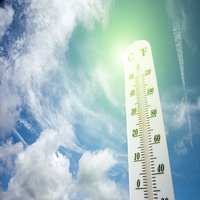Climate and Sustainable Development Governance Beyond National Governments
The role of non-state and subnational actors in implementing climate action and sustainable development

The role of non-state and subnational actors in implementing climate action and sustainable development

The Sustainable Development Goals (SDGs) and the Paris Climate Agreement represent a milestone towards the goal of a climate-compatible future. Nevertheless, there are still considerable discrepancies between political commitments and government action. National climate commitments fall far short of reaching the well-below 2 degrees target of the Paris Agreement. Similar implementation deficits exist in many areas of sustainable development.
For this reason, it is argued that measures by non-state and subnational actors, such as companies and investors, cities and regions, and non-governmental organisations (NGOs), have an important role to play. These actors have already promoted low-carbon and sustainable transformation and their contribution is increasingly recognized including within the UN system, leading to increasing promotion and mobilisation of such actions.
The article "Promises and risks of nonstate action in climate and sustainability governance" reflects the growing optimism in policy-making and science about the role of non-state actors in sustainable transformation. A group of authors lead by Sander Chan from the German Institute for Development Policy and Idil Bora from York University in Canada and including Lukas Hermwille, Project Co-ordinator of the Energy, Transport and Climate Policy Division at the Wuppertal Institute, systematically examine the most optimistic arguments about non-state and subnational actor engagement, namely:
- "the more, the better";
- "everyone wins".
- "everyone does their part" and
- "more brings more".
The authors reflect on what is needed to achieve positive outcomes from the engagement of non-state and subnational actors by identifying governance risks and discussing ways to mitigate them. Given the wide diversity of nonstate actors, the article also illustrates what types of actors are likely to relate to each argument. The article concludes by highlighting strategies for reducing governance risk that can be combined to maximise the potential of strong actor engagement beyond national governments to support the transformation towards a sustainable and climate-resilient future.
The article was published in WIREs Climate Change (Volume 10, Issue 3, May/June 2019) and is available under the following link.
